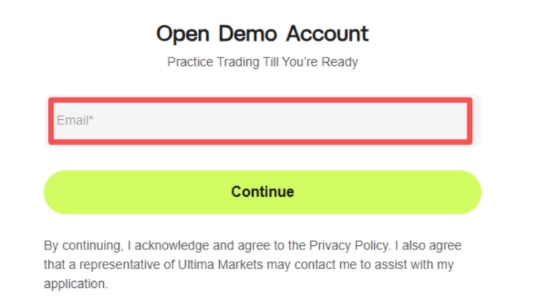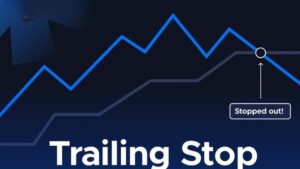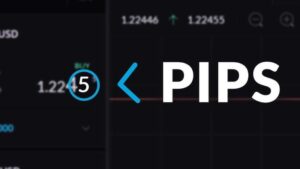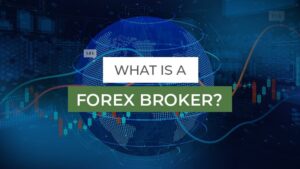Forex trading (Forex), as the largest financial market in terms of global trading volume, sees daily transactions exceeding 7.5 trillion USD, attracting countless investors. However, the market’s rapid growth also comes with risks, especially when choosing a forex broker, making security a top priority. What is a “regulated forex broker”? Why is it crucial for your investment? This article will explore the definition of regulated brokers, major global regulatory authorities, selection criteria, and provide practical guidance for investors in line with the 2025 market trends.

1. What is a regulated forex broker?
In simple terms, a regulated forex broker refers to a trading platform legally supervised by government or financial regulatory authorities. These authorities ensure that brokers comply with legal standards, protect investor funds, and maintain market fairness. Choosing a regulated broker means your funds and trading activities are somewhat safeguarded and less likely to fall victim to fraud or uncontrolled risks.
Although local financial regulation does not yet fully cover forex trading, many investors choose to operate through overseas brokers, making it particularly important to understand international regulatory frameworks.
2. Major global forex regulatory authorities
Different regulatory authorities have varying levels of strictness and credibility. The following are several common and reliable regulatory bodies:
- US NFA and CFTC
The National Futures Association (NFA) and the Commodity Futures Trading Commission (CFTC) in the United States are among the strictest regulators globally. They require brokers to maintain high transparency and segregated accounts. Suitable for investors seeking maximum security, though trading costs may be relatively high. - UK FCA
The Financial Conduct Authority (FCA) in the UK is known for its strict supervision and the investor compensation scheme (FSCS). If a broker goes bankrupt, investors can receive up to £85,000 in compensation, making it suitable for medium- to long-term traders. - Australia ASIC
The Australian Securities and Investments Commission (ASIC) has become a popular choice among Asia-Pacific investors in recent years, requiring brokers to provide fund safety measures and set reasonable leverage limits. - Cyprus CySEC
The Cyprus Securities and Exchange Commission (CySEC) operates under the EU framework. Although its regulatory stringency is slightly lower than the FCA, it attracts many beginner investors due to low costs and high leverage.
3. Why choose a regulated forex broker?

- Fund security guaranteed
Regulated brokers must keep client funds separate from company operating funds and undergo regular audits. For example, in 2024, an unlicensed small platform collapsed, causing investors to lose all capital; such events are rare among regulated platforms. - Trading transparency
Regulators require brokers to disclose spreads, fees, and other information to prevent hidden charges or price manipulation. - Legal recourse
In case of disputes, regulated brokers must comply with relevant laws, and investors can file complaints through regulatory authorities to protect their rights.
4. 2025 forex market trends and broker selection
In 2025, the global forex market will be influenced by multiple factors, making the choice of a suitable regulated broker even more critical:
- US dollar weakness and currency pair opportunities
The US Federal Reserve may cut interest rates in 2025, weakening the US dollar index (DXY) and affecting pairs such as EUR/USD and AUD/USD. Choosing a broker that offers low spreads and high liquidity helps investors seize short-term trading opportunities. - Integration of cryptocurrency and forex
Potential price rises after Bitcoin halving may cross-influence the forex market. Some brokers now offer cryptocurrency CFD trading, which is worth attention.。 - Asia-Pacific market rise
With the economic growth of India and Southeast Asia, trading volume of related pairs (e.g., USD/INR) will rise. Choosing a regulated platform that supports multiple currency pairs will be advantageous in 2025.

Against this backdrop, regulated brokers like Ultima Markets, compliant under Australia’s ASIC and Cyprus’s CySEC, and leveraging the technical advantages of the MetaTrader 4 platform, have become the choice of many investors. Whether trading forex, gold, or CFDs, Ultima Markets provides low spreads and diverse trading tools, allowing investors to respond flexibly to market changes.
5. How to choose the right regulated broker for you
- Verify regulatory license
Visit the broker’s official website, check its regulatory number, and verify it on the regulator’s website. For example, ASIC’s site allows you to check a broker’s AFSL license number. - Evaluate trading costs
Spreads, commissions, and overnight fees directly affect profits. Choosing a low-cost broker (e.g., with spreads as low as 0.1 pips) can improve long-term returns. - Use a demo account
Most regulated brokers offer demo accounts, allowing you to test platform stability and execution speed. - Customer service and educational resources
For beginners, 24/7 Chinese customer service and educational trading courses are added benefits.

6. Practical guide: forex investment starting with 100,000 TWD
Assuming you have 100,000 TWD and want to start investing through a regulated forex broker, here is a practical guide:
- 50,000 TWD: trade EUR/USD currency pair
- Why choose EUR/USD?
In 2025, the US dollar may weaken due to Fed rate cuts. EUR/USD is the most traded currency pair globally, with high liquidity and low spreads (usually 0.1–0.5 pips). - Trading strategy
On the MetaTrader platform, use 20x leverage. Investing 50,000 TWD controls approximately 0.3 lots (30,000 units). Set a stop loss at 50 pips (~1,500 TWD) and take profit at 100 pips (~3,000 TWD). Monitor economic data such as the European Central Bank (ECB) interest rate decisions. - Risk control
Do not exceed 2% of total capital per day (2,000 TWD) to avoid overtrading.
- Why choose EUR/USD?
- 30,000 TWD: trade gold CFD (XAU/USD)
- Why choose gold?
Geopolitical uncertainties (e.g., continued Russia-Ukraine conflict) may drive gold prices. Early 2025 gold prices could surpass $2,300/oz. - Trading strategy
Use 10x leverage; 30,000 TWD can trade 0.3 lots of gold (100 oz per lot). At a gold price of $2,200, each point movement equals ~30 TWD. Set stop loss at $20 (~600 TWD) and take profit at $50 (~1,500 TWD). Monitor US nonfarm payroll data and inflation reports. - Risk control
Gold is highly volatile; it is recommended to limit risk per trade to 1% (1,000 TWD).
- Why choose gold?
- 20,000 TWD: trade Bitcoin CFD (BTC/USD)
- Why choose Bitcoin?
After Bitcoin’s 2024 halving, it may challenge $100,000 in 2025. Short-term volatility suits CFD trading. - Trading strategy
Use 5x leverage; 20,000 TWD can trade 0.05 lots (1 BTC per lot). With Bitcoin at $80,000, each $1,000 movement equals ~1,500 TWD. Set stop loss at $2,000 (~3,000 TWD) and take profit at $5,000 (~7,500 TWD). Monitor crypto regulatory news and market sentiment. - Risk control
Crypto is highly volatile; it is recommended to limit total risk to 3% of capital (3,000 TWD).
- Why choose Bitcoin?
Through a regulated platform like Ultima Markets, you can use MetaTrader 4/5 for technical analysis, set automatic stop loss and take profit, and enjoy spreads as low as 0.1 pips with fast execution.
FAQ:
- How to Determine if a Forex Broker Is Regulated?
First, visit the broker’s official website and look for its regulatory license number (such as ASIC’s AFSL number or FCA registration number). Then, go to the corresponding regulatory authority’s website (e.g., asic.gov.au or fca.org.uk), enter the license number to verify its validity and authenticity. For example, Ultima Markets’ license can be verified on the ASIC website, confirming its compliance. - Are Regulated Brokers Absolutely Safe?
Regulation greatly reduces risk but does not guarantee complete safety. For example, brokers regulated by CySEC may allow high leverage (such as 1:500), which can still result in liquidation if managed improperly. It is recommended to choose stricter regulatory platforms like the FCA or NFA and review their history (e.g., any past fines). Additionally, segregated accounts and compensation schemes (such as the FCA’s FSCS) provide extra protection. - Which Regulated Forex Platforms Are Worth Choosing?
Ultima Markets, regulated by ASIC, offers low spreads (EUR/USD as low as 0.1 pips), Chinese customer support, and the MetaTrader 4 platform, making it suitable for both beginners and advanced traders. Other options include FCA-regulated IG Markets (strong in educational resources) and NFA-regulated OANDA (suitable for high-frequency trading). Choose based on your needs, such as leverage or spread. - What Should Forex Beginners Pay Attention To?
Beginners should start with a demo account and practice for at least one month to become familiar with candlestick charts, RSI, and other indicators. For example, test a 50-pip stop-loss strategy on EUR/USD to observe win rates. Choose currency pairs with low spreads (such as EUR/USD rather than GBP/JPY) and avoid high leverage (recommended 10-20x). Additionally, select a regulated platform and participate in its educational courses (such as Ultima Markets’ technical analysis lectures) to accelerate learning.



